L-Glutamine Vs. L-Carnitine: Do You Even Need Them?
Author:
Unlock your full potential by engaging with our experts and community! Have questions about your fitness journey or looking for expert advice on weightlifting techniques? Don’t hesitate — leave a comment below and David Sasha Schulz will provide a personalized answer and insights to help you reach your goals.
Torokhtiy is reader-supported. Some links are affiliate links, and we may earn a commission at no extra cost to you. See our disclosure page for details.
Are you curious about the difference between L-Glutamine vs. L-Carnitine? While both of these amino acid supplements sound similar, they have their own unique benefits for recovery and performance. Keep reading to find out if either of these supplements is right for you!
The difference between L-Glutamine vs. L-Carnitine is fairly minor. They are both used as adjunct therapy for certain medical conditions. Both supplements are primarily used by athletes for recovery. It’s worth noting that both supplements have modest effects on athletes, and are not a substitute for effective training and diet.
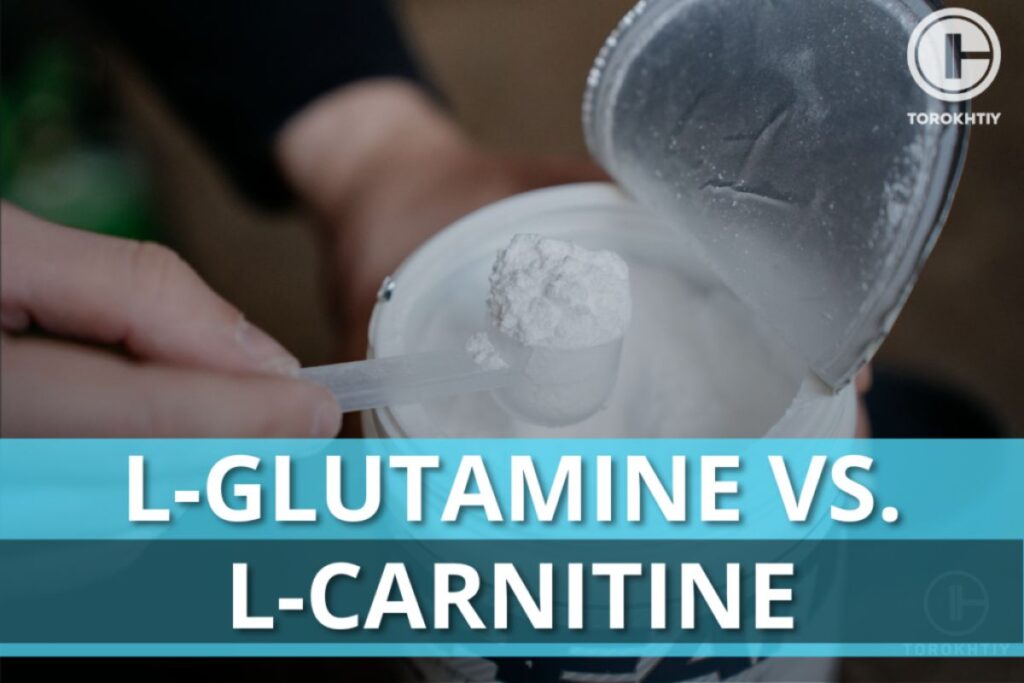
L-Glutamine vs. L-Carnitine
Whether you’re looking to take L-Glutamine or L-Carnitine for athletic performance, the effects will likely be unimpresive.
L-Glutamine has shown mixed results in improving recovery. While certain studies show high doses to be beneficial for recovery and performance, a systematic review suggests there are minimal benefits to this supplement.
Glutamine does appear to increase weight loss, although studies show muscle and fat were lost in equal measure, making it a less-than-ideal diet supplement
It’s worth noting that Glutamine is used as a supplement in medical conditions that lead to glutamine deficiency such as Cancer and HIV. Supplementary Glutamine appears to be beneficial for immune support in these cases.
Meanwhile, studies also show that consistent supplementation with L-Carnitine may show some benefits for recovery. It is also used to enhance endurance performance. Similar to L-Glutamine, Carnitine is commonly marketed as a diet supplement, although it appears to have no real effect on fat loss.
Similar to Glutamine, Acetyl-L-Carnitine is specifically used as a medical treatment, mainly for cardiac conditions. It may also be useful as an additional treatment for depression, diabetes, and more.
As you can see, these supplements are used for similar purposes. We’ll be breaking down their individual benefits in more depth below.
What Is Glutamine and What Are Its Benefits?
Glutamine is one of the most plentiful amino acids in the body. It is a nonessential amino acid, meaning it is produced in sufficient quantities by the body if sufficient amounts of other nutrients are consumed.
It can also be found in the diet through virtually all protein sources. It is used primarily for immune function and muscular function, amongst other purposes.
Let’s take a closer look at the benefits of supplementation below.
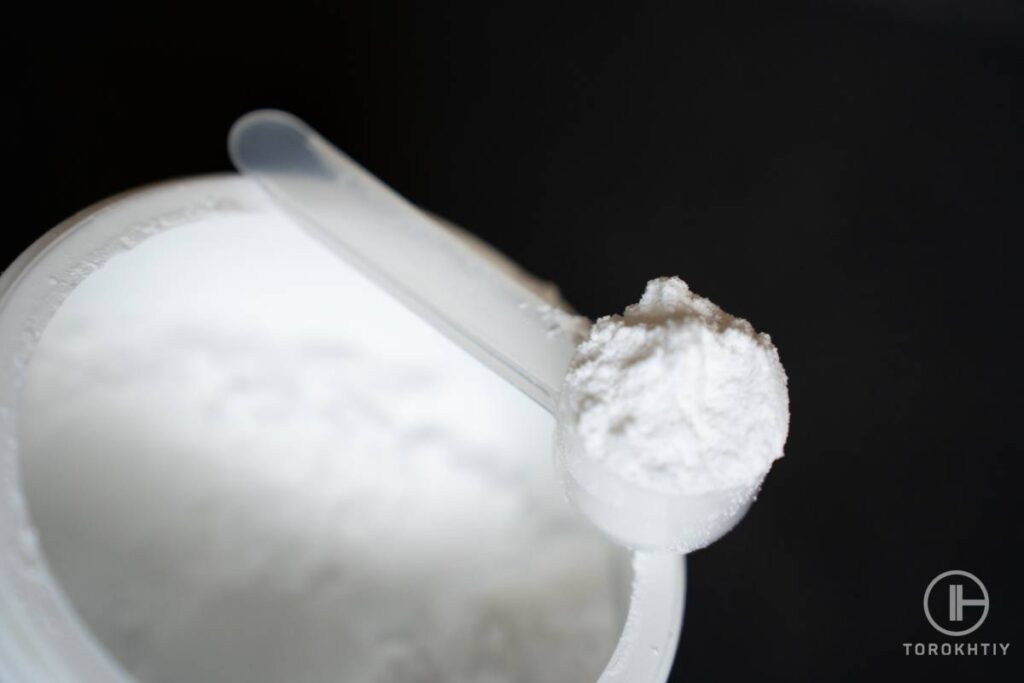
1. Recovery and Performance
The main reason most athletes are interested in Glutamine supplementation is the potential benefits it has for recovery and performance. High doses of Glutamine (30g/day) have been shown to improve both recovery and increase time to exhaustion.
However, there are conflicting results, making it difficult to recommend Glutamine for these purposes.
2. Weight Loss
Similar to its effects on recovery, there are some conflicting results surrounding the use of Glutamine for weight loss. While the systematic review mentioned above shows that Glutamine is effective for weight loss, it is not effective for just fat loss.
This means Glutamine supplementation appears to boost the loss of both fat and lean body mass, which isn’t ideal for dieting. As a result, it’s difficult to recommend Glutamine for this purpose as well.
3. Medical Treatment
Finally, one of the best uses for Glutamine is in serious medical conditions. It’s used in these scenarios because trauma or illness can render the body deficient in glutamine.
By adding supplementary glutamine, the body likely gets additional immune support. It’s worth noting that using glutamine for illness should only be considered under doctors supervision!

What Is L-Carnitine and What Are Its Benefits?
L-Carnitine is also a nonessential amino acid. It is primarily used as a catalyst to turn fat into energy, which is likely why it’s commonly marketed as a “fat burner”. However, supplementation does not appear to be beneficial for this purpose.
Let’s take a closer look at its potential benefits, and whether Carnitine supplementation is worthwhile.
1. Improved Endurance Exercise Performance
One of the main purported benefits of L-Carnitine is its use as an endurance supplement. Because of its role in converting fat to energy, supplementary L-Carnitine has been thought to be beneficial for endurance performance.
Results across studies vary, making this claim somewhat controversial.
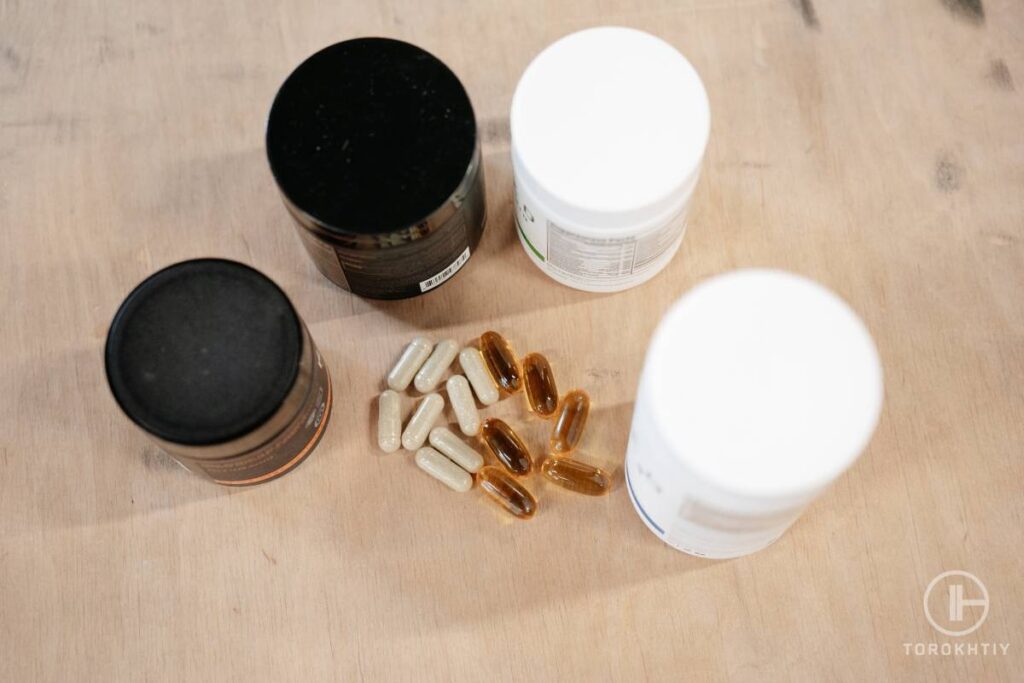
2. Improved Recovery
There appears to be more definitive evidence to support the use of L-Carnitine for recovery. 2g/day over 9 weeks has been shown to reduce oxidative stress. In only 3 weeks of supplementation, favorable adaptations were shown for muscle damage, muscle pain, and muscle disruption. This builds a fairly strong case for the use of L-Carnitine as a recovery supplement.
3. Medical Treatment
Finally, similar to Glutamine, L-Carnitine is used as a supplementary treatment to a wide variety of medical treatments. These range from angina, chronic obstructive pulmonary disease, infertility, depression, and more.
L-Carnitine should also only be used as a medical treatment under doctors supervision.
Best Glutamine Supplement
It should be noted that evidence to support the use of Glutamine is fairly limited. However, if you’re interested in taking L-Glutamine as a supplement, we recommend going for a high-quality brand like Transparent Labs.
Each serving of this supplement contains 5g of L-Glutamine. According to studies, you may need to take several servings a day for optimal effects. This supplement also contains BCAAs, which likely won’t be especially beneficial for most athletes.
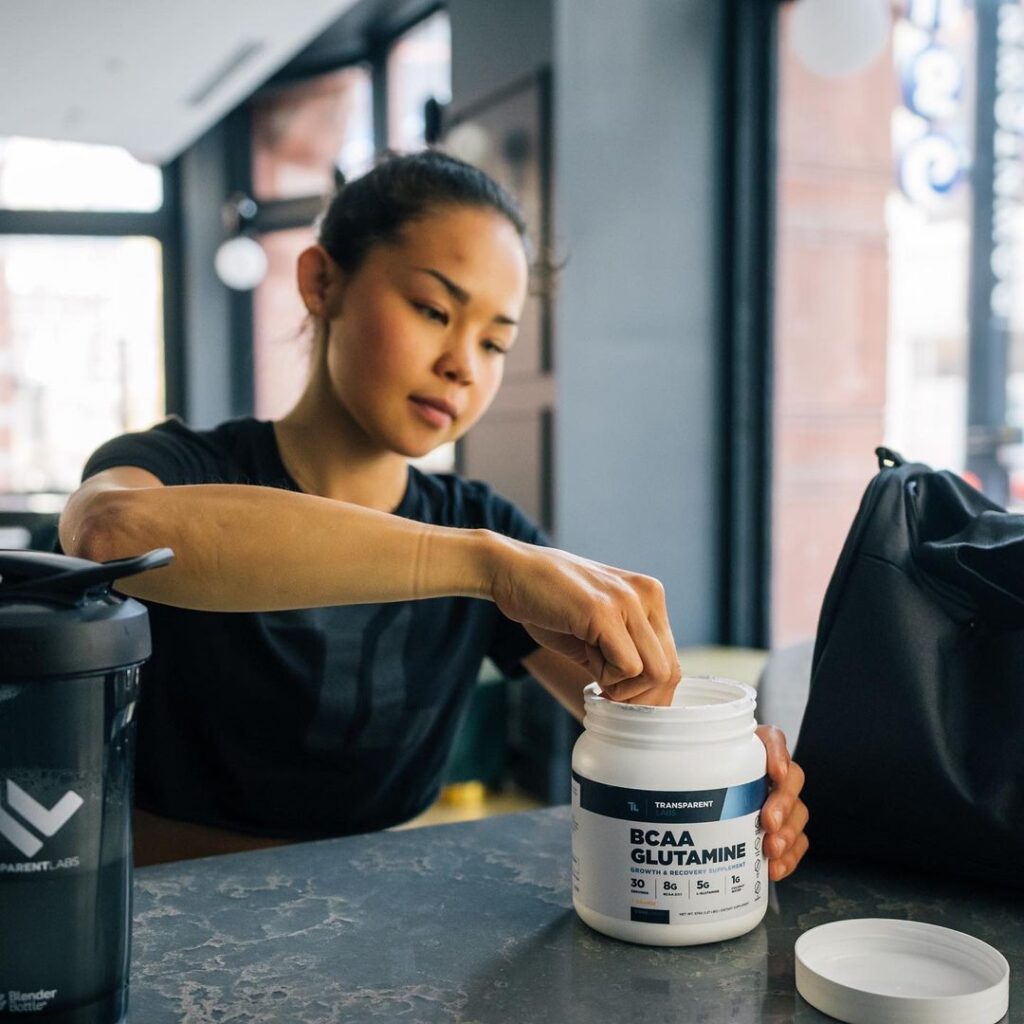
Each serving will cost you about $1.33, which is fairly expensive considering the limited effects of glutamine and BCAAs. However, if you’re interested in Glutamine supplementation, this may still be a good choice.
Best Combination of Carnitine & Glutamine
Transparent Labs Post
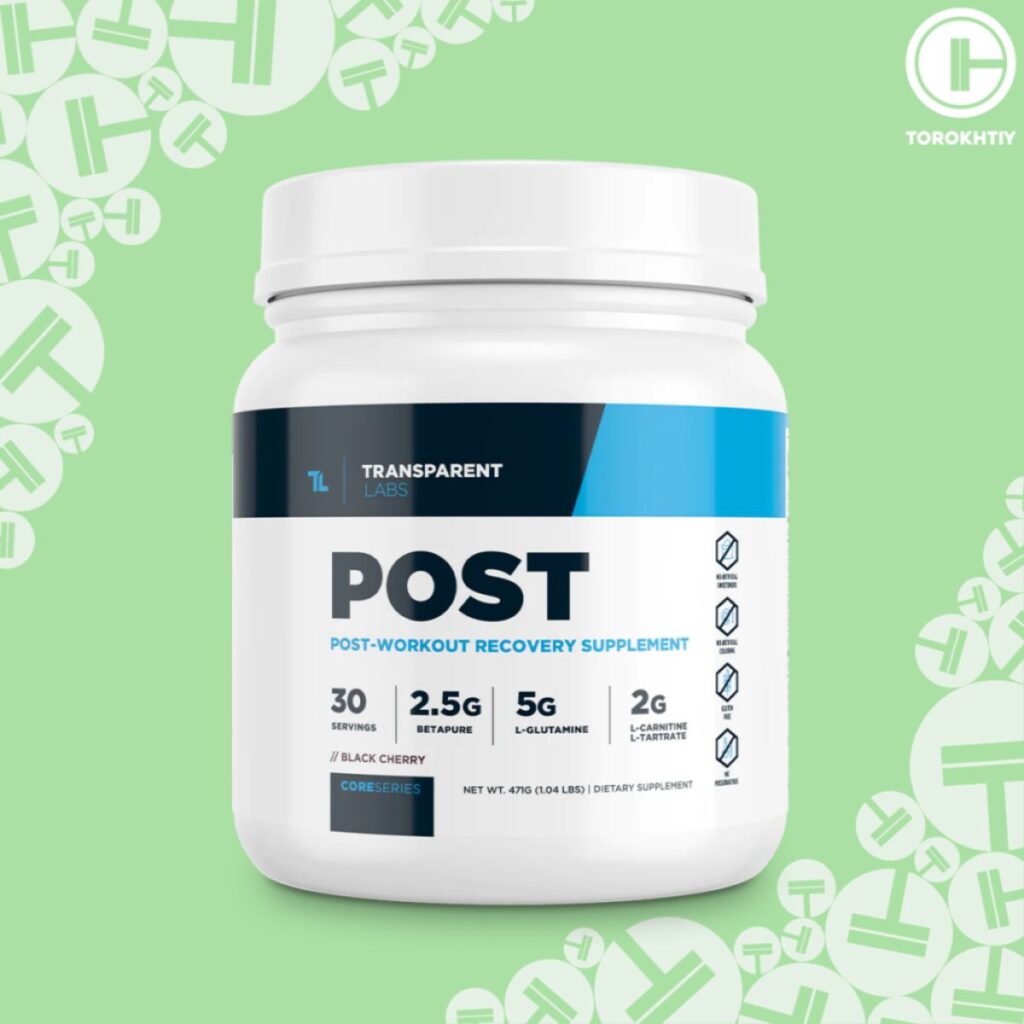
- Form: Powder
- Type: Post-Workout
- Best for: Cutting
- Flavor: Black Cherry, Orange, Strawberry Lemonade
- Key Ingredients: L-Glutamine, Betaine, Beta-Alanine
- Additional Ingredients: L-Carnitine, Tart Cherry Powder
- Package Information: 1.04lbs
- Serving: 15.7g
- Price per Serving: ~$1.67
- Company Founded: 2012
If you’re looking to combine Carnitine and Glutamine, you may be more interested in the Transparent Labs Post Supplement.
Not only do you get 5g of Glutamine and 2g of L-Carnitine, but you’ll also get the benefits of active ingredients Beta-Alanine and Betaine. On top of this, Post contains Tart Cherry Powder, which is rich in polyphenols and may be very beneficial for recovery.

This is slightly more expensive than the previous supplement at ~$1.67 per serving. However, it will likely have more significant benefits for recovery and performance, making this our top pick if you’re interested in trying both Glutamine and Carnitine.
FAQ
Is L-Carnitine the Same as L-Glutamine?
No, while these are both amino acids, they serve different functions in the body. While results from supplementation may be fairly similar, they are different nutrients.
Can I Take L-Glutamine and L-Carnitine Together?
Yes, there doesn’t appear to be any negative impact to taking these 2 supplements together. Our recommended product Transparent Labs Post combines these ingredients to create a more potent recovery blend!
Is It Better to Take Glutamine or L-Glutamine?
Glutamine and L-Glutamine are ways to refer to the same nutrient. As a result, there will be no difference between a supplement labeled as L-Glutamine vs Glutamine.
Conclusion
Overall, L-Carnitine and L-Glutamine are fairly similar supplements. Their effects are fairly minor, but they may both be beneficial for improving recovery, as well as being useful medical treatments in certain cases.
If you’re interested in taking Glutamine on its own, we recommend Transparent Labs BCAA Glutamine. However, you may be better off taking both supplements simultaneously. In this case, consider checking out Transparent Labs Post.
Have you ever tried either of these supplements? Do you have any tips for improving recovery without supplementation? Let us know your thoughts in the comments below!
Also read:
- L-Citrulline vs L-Arginine
- Citrulline Malate vs L Citrulline
- L-Arginine Foods
- Glutamine for Muscle Recovery
- Glutamic Acid vs Glutamine
- Cla vs L Carnitine
- When to Take L Carnitine
- Can I Take L-Carnitine Without Exercise
- Best Time to Take L-Arginine
Reference:
- Tavis Joseph Piattoly, “L-glutamine supplementation: effects on recovery from exercise” LSU Master’s Theses. (2005).
- Amirhossein Ramezani Ahmadi, et. al, “The effect of glutamine supplementation on athletic performance, body composition, and immune function: A systematic review and a meta-analysis of clinical trials” Clinical Nutrition, Volume 38, Issue 3. 1076-1091. (2019)
- Australian Institute of Sport “AIS Sports Supplement Framework: Carnitine – Practitioner Fact Sheet” ais.gov.au, https://www.ais.gov.au/__data/assets/pdf_file/0017/1048310/Carnitine-InfographicFINAL.pdf (Accessed October 30, 2023)
Why Trust Us?
With over 20 years in Olympic weightlifting, strength training, nutrition coaching, and general fitness our team does its best to provide the audience with ultimate support and meet the needs and requirements of advanced athletes and professional lifters, as well as people who strive to open new opportunities and develop their physical capabilities with us.
By trusting the recommendations of our certified experts in coaching, nutrition, and sports training programming, as well as scientific consultants, and physiotherapists, we provide you with thorough, well-considered, and scientifically proven content. All the information given in the articles concerning workout programming, separate exercises, and athletic performance, in general, is based on verified data.
The product testing process is described in more detail here.
Author: David Sasha Schulz
Doctor of Chiropractic, BSc Human Biology, CSCS
Strength coach (CSCS) – 10 years
Sasha is a Chiropractor and Kinesiologist practicing in Kelowna, BC, Canada. He has been practicing Chiropractic since 2019, integrating manual therapy, strength training and programming principles, and nutritional strategies to get his patients optimal results. He currently scratches the competitive itch in fitness, and the occasional endurance race, and plays golf and snowboards for fun. He has an interest in all strength and fitness-related sports.



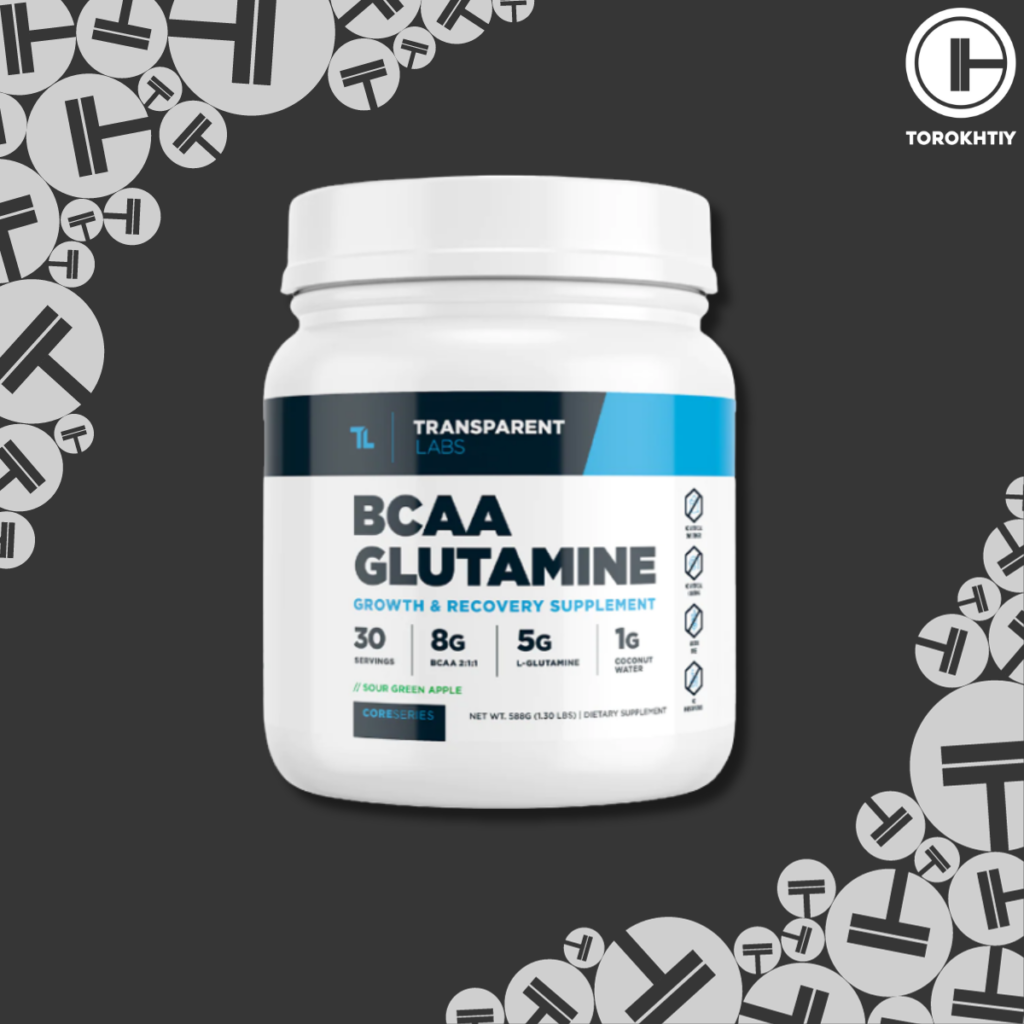
Still have questions after reading our article? Unlock your full potential by engaging with our experts and community! Don’t hesitate — leave a comment below and David Sasha Schulz will provide a personalized answer and insights to help you reach your goals.